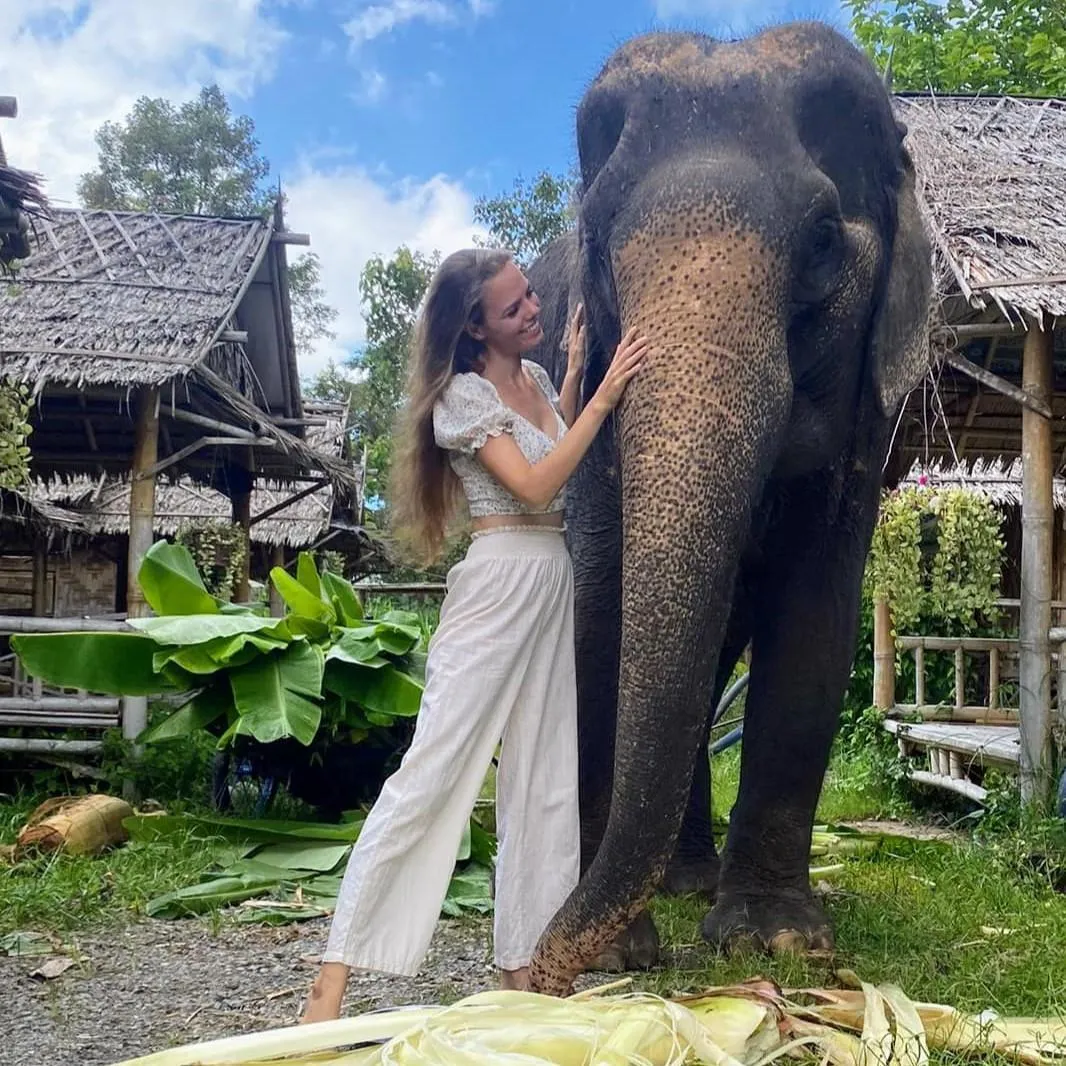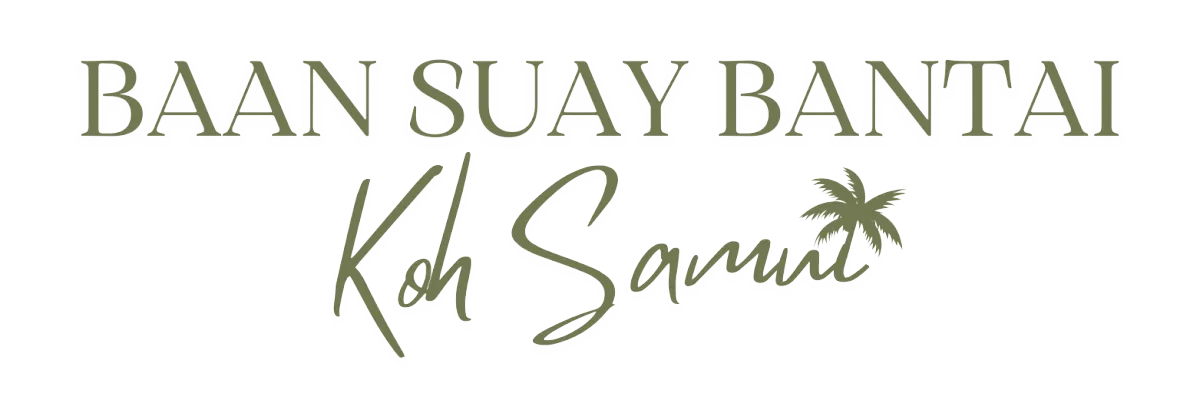Most Recent Blogs

The Ethical Dilemma of Elephant Tourism in Thailand: A Call for Change
“We visited what was marketed as an ethical Elephant Sanctuary in Chiang Mai. Despite our efforts to research the facility extensively, we later discovered that the elephants were chained up after hours and exhibited signs of stress from constant interaction with large groups of tourists. ” - Misty Dowling
Introduction:
Thailand's relationship with elephants runs deep, intertwining with its cultural heritage and natural landscapes. Once revered as symbols of strength and wisdom, elephants now find themselves at the center of a complex ethical dilemma within the tourism industry. From their historical roles in logging and agriculture to their exploitation in entertainment and tourism, the journey of Thai elephants reflects a turbulent narrative of human-elephant interaction.

For centuries, elephants roamed freely in the wild, revered by Thai society for their significance in religion, agriculture, and warfare. However, with the decline of natural habitats and the rise of urbanization, elephants faced increasing threats from human encroachment. As logging practices depleted forests, elephants transitioned from working animals to tourist attractions, forced to perform tricks and give rides to visitors.
Lack of education and awareness
Understanding the importance of education in combatting elephant abuse and unethical treatment is crucial. Many individuals unknowingly contribute to these practices when they visit animal shows or engage in activities like riding elephants during their vacations in Thailand. It's essential to recognize that most people have good intentions and simply lack awareness of the consequences of their actions.
Reflecting on my own journey, I must admit that, like many others, I was once misinformed about the realities of animal exploitation. Years ago, during a visit to Mexico, my travel partner and I participated in an activity that I now deeply regret: swimming with dolphins performing tricks. At the time, we were misled by misinformation and believed there was no harm in such experiences.
Similarly, during our initial exploration of Thailand many years ago, we visited what was marketed as an ethical Elephant Sanctuary in Chiang Mai. Despite our efforts to research the facility extensively, we later discovered that the situation was far from ideal. While the sanctuary did not offer elephant trekking and purported to prioritize the well-being of the animals, we learned that the elephants were chained up after hours and exhibited signs of stress from constant interaction with large groups of tourists.
These experiences were eye-opening and prompted us to embark on a journey of learning and advocacy. We have since dedicated ourselves to conducting thorough research, supporting reputable animal conservation initiatives and sanctuaries, and raising awareness among tourists visiting Thailand. Our goal is to empower individuals with knowledge, encourage responsible tourism practices, and contribute to the protection and welfare of animals across the country.
The Dark Side of Elephant Tourism
Now what actually is the harm in Elephant Camps and sometimes even Elephant sanctuaries?
Behind the facade of entertainment lies a grim reality of exploitation and abuse. Traditional training methods, such as the "phajaan" or "crush," inflict unimaginable pain and suffering on elephants, breaking their spirits to conform to human commands. In tourist camps and attractions, elephants endure grueling hours of labor, inadequate living conditions, and physical punishment for disobedience.
Deciphering Ethical Sanctuaries
Amidst the proliferation of elephant tourism, ethical sanctuaries emerge as beacons of hope for these gentle giants. These sanctuaries prioritize the well-being and freedom of elephants, offering them a chance to live in a natural environment free from exploitation. However, distinguishing between genuine sanctuaries and profit-driven operations poses a challenge for visitors. Look for sanctuaries that prohibit riding, chaining, and performing, and instead focus on natural behaviors and conservation efforts.
The Black Tusk Documentary
The documentary "Black Tusk," produced by Lost LeBlanc, serves as a sobering reminder of the harsh realities of elephant tourism in Thailand. Through Christian LeBlanc's journey, viewers are confronted with the brutal truth behind the industry and the urgent need for change. While the documentary's content may be shocking, it serves as a catalyst for awareness and action.
*Warning: The following video contains shocking content related to elephant abuse and may be disturbing to some viewers.
The Path to Change
Despite the daunting challenges, there is hope on the horizon. A growing movement of conservationists, activists, and ethical operators is dedicated to reshaping the future of elephant tourism. By advocating for stricter regulations, supporting genuine sanctuaries, and promoting responsible tourism practices, we can collectively work towards ending the cycle of abuse and exploitation.
Save Elephant Foundation, founded by Lek Chailert, is a leading organization dedicated to the rescue, rehabilitation, and conservation of Thai elephants. With a mission to end the exploitation and abuse of elephants, the foundation operates multiple elephant sanctuaries across Thailand.
At these sanctuaries, rescued elephants find refuge from their former lives of captivity, logging work, or tourist entertainment. They are provided with a natural environment where they can roam freely, socialize with other elephants, and engage in natural behaviors. Save Elephant Foundation focuses on creating ethical and sustainable solutions for elephant tourism, advocating for responsible interactions that prioritize the well-being of the animals.
In addition to elephant rescue and sanctuary care, Save Elephant Foundation conducts community outreach and education programs to raise awareness about elephant welfare and conservation. Through these efforts, they strive to foster a culture of compassion and respect for elephants and inspire positive change in the way humans interact with these magnificent creatures.
*For more information about Save Elephant Foundation and their work, visit their official website: Save Elephant Foundation.
Elephant Camps & Sanctuaries on Koh Samui
Koh Samui, like many places in Thailand, has several elephant camps and sanctuaries. These establishments vary widely in their practices and treatment of elephants, so it's essential to research thoroughly before visiting. Here are some notable elephant camps and sanctuaries on Koh Samui:
❌ A range of places we at Baan Suay Bantai DON'T support:
Elephant Gate: Elephant Gate offers elephant trekking experiences as well as educational programs about elephant conservation. While they claim to prioritize elephant welfare, some visitors have raised concerns about the conditions in which the elephants are kept and the ethics of riding elephants.
Namuang Safari Park: Namuang Safari Park offers various activities, including elephant trekking, elephant shows, and elephant bathing. However, like many safari parks, there have been reports of mistreatment and exploitation of elephants for tourist entertainment.
Jungle Club Samui: While not exclusively an elephant sanctuary, Jungle Club Samui (which is famous for their viewpoint restaurant and accommodation) unfortunately, also offers elephant trekking experiences along with other activities like ziplining and ATV tours. It's essential to inquire about their elephant welfare practices and ensure they prioritize the well-being of their elephants.
✅ Koh Samui Elephant Sanctuaries we at Baan Suay Bantai DO support:
❤️🐘 I love Elephant Project at Samui Elephant Cafe
The I Love Elephant Project at Samui Elephant Cafe is the only non-profit organization on the island.

Founded and run by miss Pookie, a vetinarian who specializes in Elephant care. Originally from Northern Thailand, Miss Pookie's journey began with her first visit to Koh Samui for a holiday, where she was disheartened by the discovery of the exploitation of Elephants for tourist entertainment. This experience ignited a deep-seated desire to protect these gentle giants, prompting her to pursue veterinary studies to better understand their needs. She found her purpose and mission to save Elephants from abuse but this comes with many challenges.
You can’t just steal an Elephant, not even if they’re being abused. They ask large sums of money to buy (rescue) an Elephant, money she did not have. But she was dedicated not to give up so, despite facing financial obstacles, Miss Pookie found innovative solutions, such as utilizing Elephant dung to create sustainable products and hosting educational workshops to raise awareness about Elephant welfare. Yes, you read that right! She started buying Elephant poop to make paper out of it. These efforts culminated in the establishment of a sanctuary, providing a safe heaven for rescued Elephants like YoYo. And that’s how the Elephant Cafe came about.
For many years they were a donation-only sanctuary, meaning no entrance fee, or fees whatsoever. Everyone was welcome to visit and could decide to donate (or not), to support their cause. While initially operating on donations alone, the sanctuary's growing needs necessitated the introduction of visitor programs to ensure ongoing care for its residents. Feeding and caring for an Elephant isn’t cheap. Did you know they eat anywhere between 150 and 170 Kg a day!?
This transition reflects the practical realities of sustaining Elephant welfare in a challenging environment.
In addition to her role as sanctuary founder, Miss Pookie serves as Koh Samui's sole Elephant veterinarian, providing vital medical assistance to Elephants across the island. Despite the ethical dilemmas inherent in her dual role, Miss Pookie remains steadfast in her commitment to providing compassionate care to all Elephants in need.
Yes, she even voluntarily helps at those camps where the sad reality of rides and abuse still take place. Hearing this shocked me quite a bit to be honest and I found it difficult to hear that in a way she supports those businesses or helps them continue to exist.. that was the first thought that came to my mind for me until she explained to me why she does it. Her thought on it is that those Elephants don’t choose to be there and that they still need her help! And she is 100% right! She can’t stop all the bad things that are happening on the island and beyond as long as what they do is not against the law but what she can do is offer some relief and help Elephants that are hurt, wounded, or ill to feel better. So, that’s what she does. During difficult times she also shares her resources with all other camps and sanctuaries on the island whether that’s food, medicine, etc.
Since their inception in 2015, the focus of the sanctuary has been solely on elephants, with no elephant rides or shows. Despite the challenges and setbacks, they’ve made significant progress, evolving from a single elephant to four within our project.
Miss Pookie and het team remain committed to their vision ang goal... the Elephant One project: to reintroduce elephants into the wild. See the roadmap for more information.

So, how are Elephants treated at Samui Elephant Cafe, and how is their welfare protected?
You may be surprised to hear that you can actually get up close and personal with the Elephants and engage in feeding and bathing activities! But isn’t that what experts warm about, and don’t they suggest visiting sanctuaries with a “hands off” policy ONLY!?
Yes, that’s true, but again, the answer to this controversial question (Should you or should you not visit an Elephant Sanctuary in Thailand?) isn’t a simple “yes” or “no”.
Of course I was curious to hear miss Pookie's thoughts on the matter of visiting sanctuaries with a “hands off” policy ONLY, and this is what she shared with me:
"I understand and respect the differing opinions regarding touching and feeding elephants. Our sanctuary adheres to a hands-on approach, allowing visitors to interact with our elephants under strict supervision and guidance from our experienced staff. We believe this approach fosters a deeper connection between humans and elephants while ensuring the elephants' well-being and safety. However, guests who wish to interact with the elephants must do so under the supervision of our dedicated elephant caretakers. This is because there are occasions when we need to consider the elephants’ emotional state or if they are unwell or too young to learn about interactions with human friends, requiring restricted or limited contact. This is done for the safety and well-being of both our visitors and the elephants themselves." - miss Pookie
At the Elephant Cafe, the programs are short, visiting hours are limited, and they allow a maximum number of visitors at a time (they assess group or walk-in requests on a case-by-case basis so making reservations before hand is recommended). This way they can ensure that the Elephants get enough freedom and space for themselves. They roam free and aren’t chained or caged at any time.
So, no “hands off” policy but miss Pookie and her team clearly care for the animals and make their welfare the number one priority. They do their best to spread awareness, educate more people, and rescue and support more Elephants nationwide. How can we not support that?
The story of Samui Elephant Kingdom is one that is deeply rooted in love, respect, and a profound understanding of elephants. This sanctuary, that has been around for many years, was brought to life by Chokchai Rueangsri, a man whose life has been intertwined with these majestic creatures for as long as he can remember. Born into a family that has been caring for elephants for generations, Chokchai's journey with these gentle giants began at a very young age.
Up until a couple of years ago, the elephants of his family were the shining stars of Koh Samui's tourism industry, their days filled with trekking adventures and performances for eager tourists.
But fortunately, Chokchai has turned things around! Whether is was the realization that the demand
was changing with more tourists looking for ethical sanctuaries or not, we don't know, but most importantly, he brought big changes and really turned things around for the elephants that had been in his families care for so long.
He knew that he had to do something to change the fate of these beautiful creatures. And so, the seeds of Samui Elephant Kingdom were sown. A place where elephants could live in peace, free from exploitation, and where their happiness and well-being were the top priority. A place where the story of each elephant is now one of hope and healing, rather than suffering and exploitation.

So, in 2019, this dream took its first breath of life. The Samui Elephant Kingdom was born, marking the beginning of a transformative journey. Over the next three years, time, effort, and resources were poured into creating a haven for these gentle giants. Here, they could finally break free from their chains, retire from service, and begin to rediscover their instinctive behaviors without fear.
So, should you, or should you not visit an Elephant Sanctuary while in Thailand?
Let's say, when considering visiting an elephant camp or sanctuary, it's crucial to prioritize establishments that prioritize ethical treatment and welfare of the elephants. Look for places that prohibit riding and performances, provide spacious and natural habitats for the elephants, and focus on education and conservation efforts. Additionally, reading reviews and seeking recommendations from trusted sources can help ensure a positive and responsible elephant experience.
Looking Ahead
The road to ending elephant abuse in Thailand is long and arduous, but not insurmountable. With increased awareness, education, and collective action, we can create a future where elephants are revered and respected, not exploited for profit. By choosing ethical alternatives and supporting initiatives that prioritize elephant welfare, we can pave the way for a brighter future for these magnificent creatures and the communities that depend on them.
Conclusion
In the midst of the ethical dilemma surrounding elephant tourism in Thailand, there is an opportunity for positive change. By acknowledging the past, confronting the present, and shaping the future, we can ensure a world where elephants thrive in their natural habitats and are treated with the dignity and respect they deserve. Together, let us embark on a journey towards a more compassionate and sustainable future for Thai elephants and all living beings.
Let us know if you'd like to see more blogs and articles from us about animal wellfare and Wildlife in Thailand
© 2023+ Misty Dowling Media - All Rights Reserved

